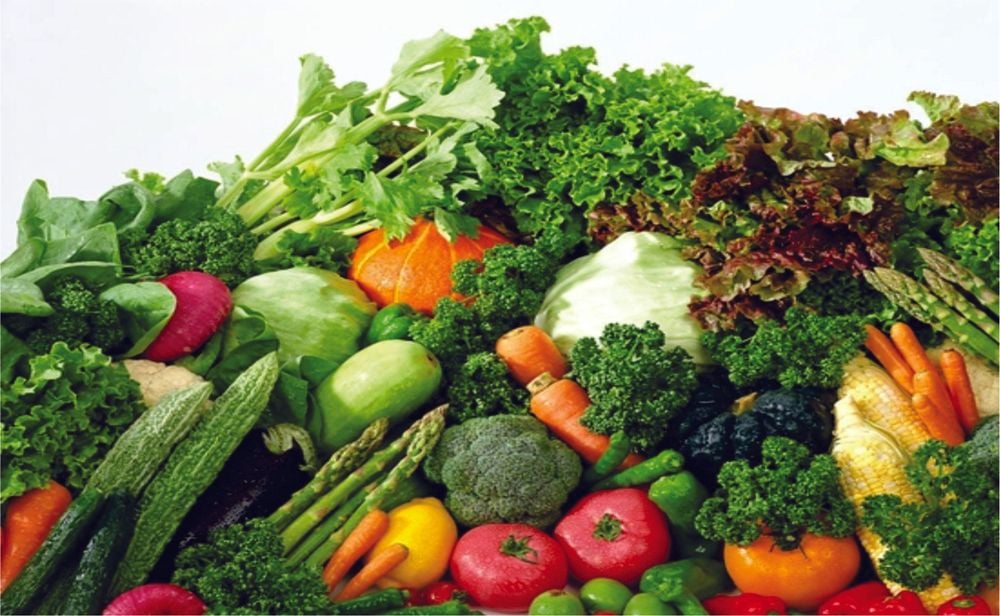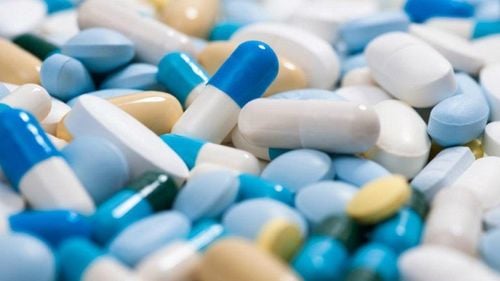This is an automatically translated article.
Cancer is one of the leading causes of death worldwide. However, many studies show that lifestyle changes such as maintaining a proper diet can reduce the risk of disease by 30-50%. Practical evidence also supports the idea that eating habits can prevent cancer or that eating habits cause cancer. This article will discuss how eating habits affect health.1. Eating too much of certain foods can increase the risk of cancer
Identifying foods that cause cancer is not an easy task. However, many observational studies have shown that consuming too much of some of the following foods increases the risk of developing malignancies:Sugar and refined carbs Packaged foods are high in sugar but low in nutrients. Fiber and other nutrients have been linked to an increased risk of cancer. In particular, researchers suggest that a diet that causes high blood sugar levels is associated with an increased risk of many malignancies such as stomach cancer, breast cancer, and colorectal cancer.
A study conducted on 47,000 adults found that those who consumed a lot of refined carbs had twice the risk of colon cancer compared to others.
High blood sugar and insulin levels are considered risk factors for cancer. Insulin stimulates cell division, promotes growth and spread of malignant cells, and makes them difficult to eliminate from the body. In addition, high levels of insulin and glucose in the blood are associated with inflammatory reactions occurring inside the body. Over time, they can lead to the growth of abnormal cells and can cause cancer.
This may explain why patients with diabetes have a higher risk of many malignancies. In particular, the risk of colorectal cancer in patients with diabetes increased by about 22%.
For the cancer-fighting diet, patients should limit or avoid foods that increase blood insulin levels, including sugar and refined carbs.
Processed meat The International Agency for Research on Cancer (IARC) considers processed meat to be one of the carcinogens.
Processed meats are defined as meats that have been preserved in flavor by treatment, salting and smoking. Some of the popular processed meats on the market include sausages, ham, and smoked meats.
Many observational studies show that there is an association between consumption of processed meat and a higher risk of cancer, especially colorectal cancer. Meanwhile, a retrospective review of many studies found that people who ate a lot of processed meat had a 20 to 50 percent increased risk of colorectal cancer when compared with those who ate little or no food. this.
Overcooked foods Cooking foods at high temperatures such as baking, frying, and stewing can produce harmful compounds such as heterocyclic amines (HA) and AGEs. This accumulation of many toxic compounds can cause inflammation, which eventually leads to malignancies and many other diseases.
Some foods, such as foods of animal origin that are rich in fats and proteins, as well as processed foods, should not be processed at high temperatures because toxic components can be produced. . Some other foods include red meat, some cheeses, fried eggs, margarine, mayonnaise, oils.
To prevent cancer, avoid burning food and choose simple cooking methods, especially when cooking meat, such as steaming, boiling.
Dairy foods Many observational studies show that high consumption of dairy products may increase the risk of prostate cancer.
Another study followed 4000 men with prostate cancer. The results show that drinking a lot of milk has the ability to accelerate the disease progression and the risk of death. It is hypothesized that high intakes of calcium, IGF-1, or the hormone estrogen from cows are less associated with prostate cancer, so more studies are needed to determine the cause of death in these patients. this.
2. Being overweight or obese may increase the risk of malignancies
In addition to tobacco and the inflammatory response, obesity is the single largest single risk factor for cancer around the world. Obesity increases the risk of 13 different types of cancer, including esophageal, colon, pancreatic, kidney, and breast cancers in postmenopausal women.In the US, it is estimated that weight-related problems account for about 14% - 20% of cancer deaths in both women and men.
Obesity can increase cancer risk in the following ways:
Excess body fat can lead to insulin resistance. After that, the cells cannot properly take in glucose causing them to divide faster. People who are obese tend to have more inflammatory cytokines in their blood. These are agents that induce chronic inflammatory responses and promote cell division. Fat cells increase estrogen levels, leading to an increased risk of breast and ovarian cancer in postmenopausal women.

Đường và thực phẩm chế biến sẵn làm tăng nguy cơ mắc các bệnh lý ác tính
3. Certain foods have cancer-preventing properties
No food can prevent malignancy when used alone. Therefore, a balanced diet is the solution that brings the most benefits to health.Scientists have estimated that adherence to a cancer-preventing diet can reduce the risk of cancer by about 70% and have a reversible effect in cancer patients as well. These foods have the ability to prevent cancer by blocking blood vessels to nourish malignant cells. However, nutrition is a complex issue, and how the diet affects health depends on how it is grown, prepared and stored.
Some cancer-preventing foods include:
Green vegetables Many observational studies have found an association between a diet high in green vegetables and a lower risk of cancer.
Many green vegetables contain many antioxidants that can prevent cancer. Cruciferous vegetables such as broccoli, mustard greens, and broccoli contain a lot of sulforaphane, a substance that has the ability to reduce the size of tumors in mice by more than 50%. Tomatoes and carrots may also reduce the risk of prostate cancer, stomach cancer, and lung cancer.
Fruits Similar to green vegetables, fruits contain many antioxidants that can prevent cancer. Research has shown that eating citrus fruits three times a week can reduce the risk of stomach cancer by about 28%.
Beans and legumes Legumes and legumes are high in fiber and some studies show that getting more of these foods can prevent colorectal cancer.
Olive oil Many studies have concluded that olive oil has the ability to reduce the risk of cancer. In particular, those who consumed the highest amount of olive oil had a 42% reduction in cancer risk when compared to the control group.
Garlic Garlic contains a lot of allicin, which has anti-cancer properties. Several studies have linked garlic supplements to meals with a lower risk of malignancies including stomach cancer and prostate cancer.
Fish Much evidence supports the idea that eating a lot of fresh fish helps protect against cancer, possibly because fat from fish fat can reduce inflammatory responses. Regular consumption of fresh fish reduces the risk of colorectal cancer by about 12%.

Ăn nhiều rau xanh và trái cây giúp ngăn ngừa ung thư
4. A diet rich in plant-based foods can help the body fight cancer
Eating more plant-based foods has been linked to a lower risk of cancer.Many studies have found that vegetarians have a lower risk of cancer and mortality from malignancies than others in the community.
In fact, in 96 studies, the risk of cancer in vegetarians decreased by 12%. However, these are observational studies, with no causal role.
Vegetarians often eat a lot of these green vegetables, fruits, beans and whole grains. These are foods that can prevent cancer. In addition, vegetarians also do not eat a lot of processed foods or overcooked foods, two factors that increase the risk of cancer.
To register for an examination at Vinmec International General Hospital, you can contact the nationwide Vinmec Health System Hotline, or register online HERE.
Please dial HOTLINE for more information or register for an appointment HERE. Download MyVinmec app to make appointments faster and to manage your bookings easily.













